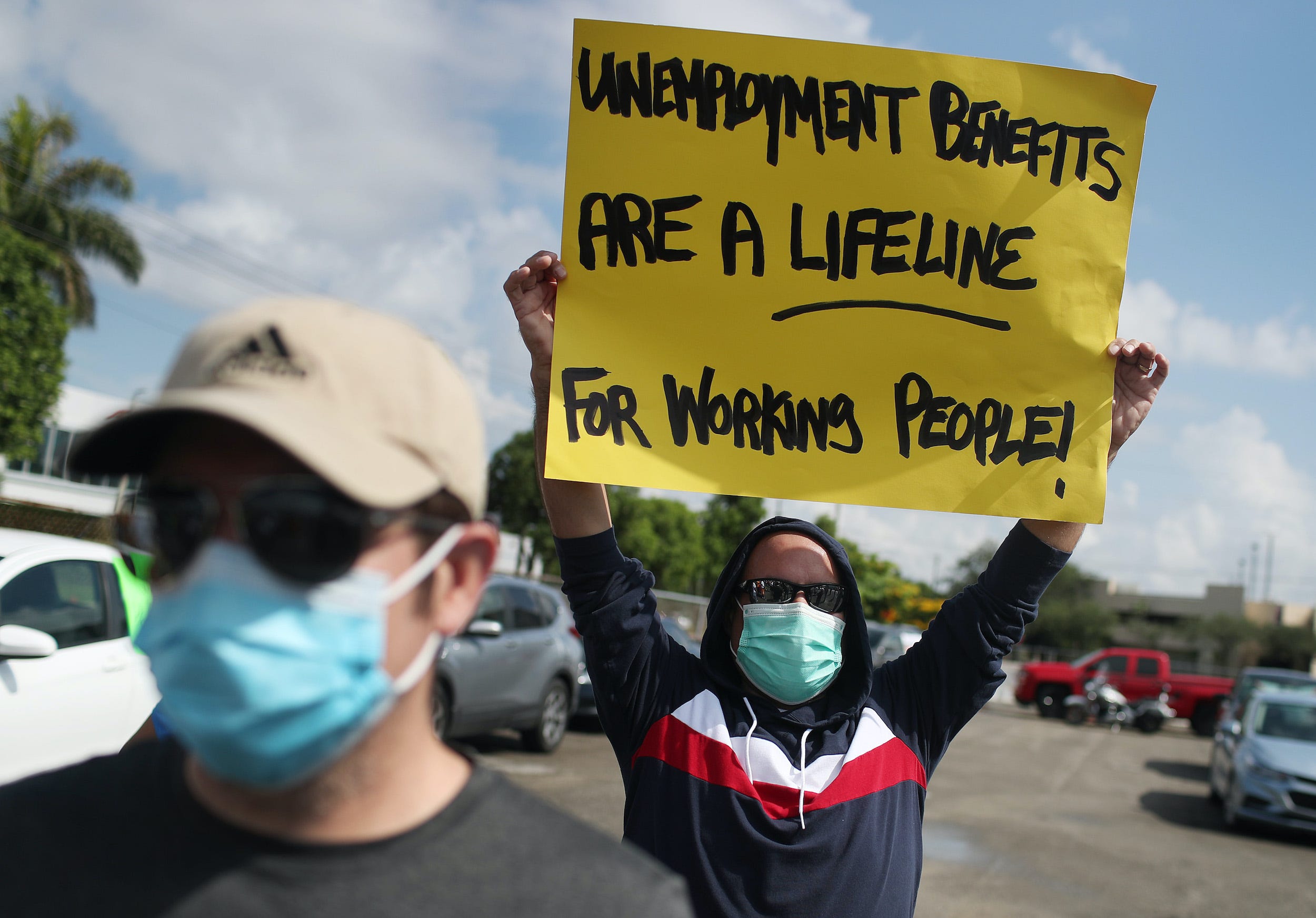
Joe Raedle/Getty Images
- A group of more than 125 economists worldwide are calling for another round of $1,200 COVID-19 stimulus checks to keep Americans out of poverty.
- Signatories included Jason Furman — who was the top economic advisor to former president Barack Obama — as well as Claudia Sahm, a former Fed economist, and Alan Blinder, a former Federal Reserve board vice-chairman.
- “Unless policymakers act quickly to respond to the crisis at the scale necessary, we risk the damage to the economy lasting much longer than necessary,” the economists said.
- Democrats and Republicans both agree that a stimulus package needs to be passed — but the two sides disagree on the amount of money needed to support people and businesses, which is delaying a deal.
- Visit Business Insider’s homepage for more stories.
More than 125 economists from major institutions across the world are urging Congress to send a second round of $1,200 stimulus checks to American families and businesses hit hardest by the COVID-19 crisis.
By early June, the federal government had sent out nearly 160 million stimulus checks as part of the $2.2 trillion Coronavirus Aid, Relief, and Economic Security Act (CARES), which Congress passed in March. Individuals received up to $1,200 and couples received up to $2,400, plus an additional $500 for each child under 16.
Now, a group of 127 economists have signed an open letter to US policymakers, urging them to send another round of payments. Signatories included Jason Furman, who was the top economic advisor to former president Barack Obama, Claudia Sahm, a former Fed economist, and Alan Blinder, a former Federal Reserve board vice-chairman.
Democrats and Republicans both agree that a stimulus package needs to be passed — but the two sides disagree on the amount of money needed to support people and businesses, which is delaying a deal.
The Economic Security Project, which advocates for guaranteed income, organized the open letter.
"We urge policymakers to use all the tools at their disposal to revitalize the economy, including direct cash payments, which are one of the quickest, most equitable and most effective ways to get families and the economy back on track," the economists said in the open letter.
"Unless policymakers act quickly to respond to the crisis at the scale necessary, we risk the damage to the economy lasting much longer than necessary, particularly for those at the bottom who have been hit the hardest."
The economists described the stimulus checks as "an essential tool" for keeping lots of Americans out of poverty.
The economists wrote that low-wage earners, women, and Black workers have been impacted the most by COVID-19.
"While the economy continues on the path to recovery, it's critical that we quickly implement a robust stimulus to help promote a sustained and racially equitable recovery and help families and businesses get back on their feet," the economists wrote.
They cited research from the Urban Institute, showing that a second round of checks would ensure 14 million people are kept out of poverty.
Republicans are pressing for a $500 billion stimulus plan, but the Democrats have rejected this twice, and want a multi-trillion dollar stimulus package that would include $1,200 stimulus checks, $600 federal unemployment benefits, funds for virus testing and contact tracing, and state aid.
On November 17, President-elect Joe Biden called on Congress to pass a $3 trillion coronavirus relief deal. This deal was stopped in the Senate by Majority Leader Mitch McConnell, who deemed it too expensive.
House Speaker Nancy Pelosi and Senate Minority Leader Chuck Schumer sent a letter to McConnell on November 17, telling him to resume conversations around the next relief package.
Following this, Pelosi, Schumer, and Biden echoed calls on Friday for Congress to pass another relief plan before the end of the lame-duck session.
